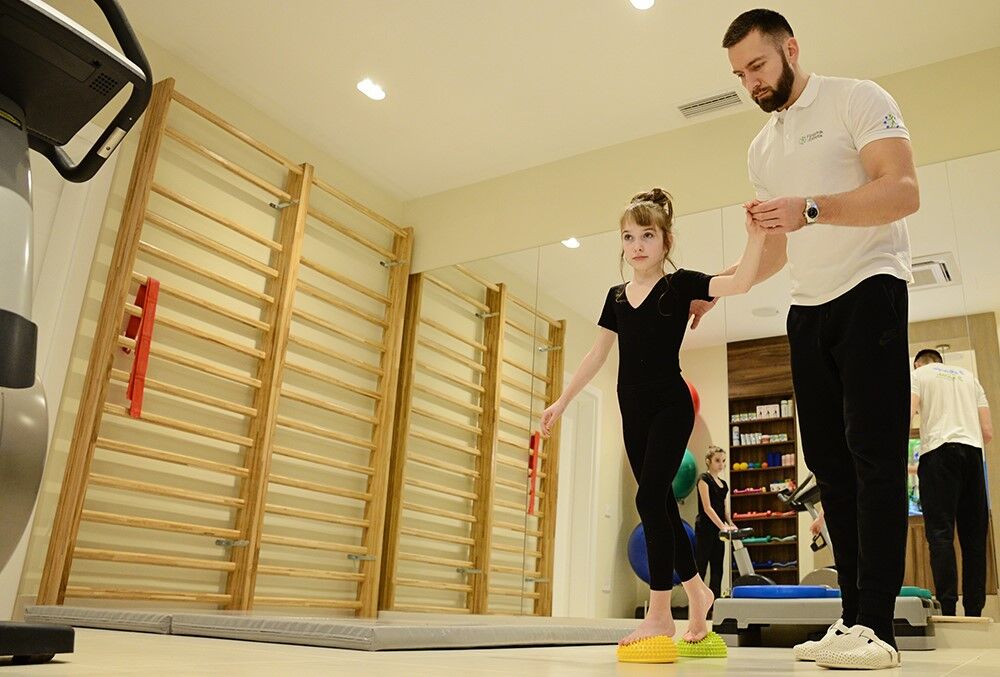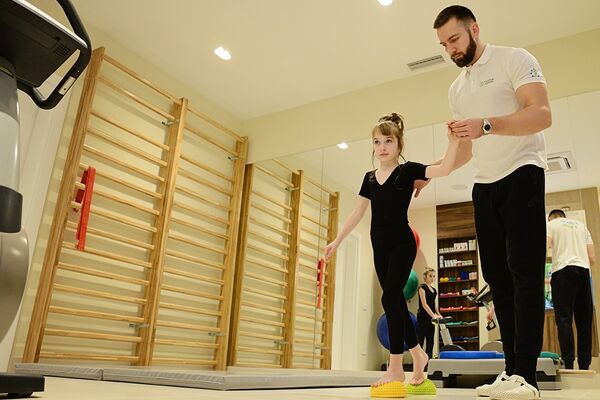One of the crucial medical issues with growing children is the development of varied types of body deformities that can directly affect the child’s health
There are several periods with increased chances of developing deformities in children: when the child begins to walk, when it goes to school and during adolescence.
The most frequent cause of deformities is muscle weakness, which occurs due to insufficient physical activity. Extended use of mobile devices and computers is one more negative factor influencing children’s posture.
The most common bodily deformities in children are:
- kyphosis
- scoliosis
- lordosis
- X and O legs (knock knees and bow legs)
- Flat feet
The procedure of diagnosing deformities in children
Evaluating the condition
An individual examination by a specialist of physiotherapy aimed at determining the cause of the deformity. By applying specialised diagnostic procedures along with anthropometric measurements (range of motion, extremities reach, extremities size, MMT- manual muscle test), we can determine the cause, type and degree of deformation.
The goal of the assessment is to reach a medical and physiotherapy diagnosis
A physiotherapy diagnosis is a thorough report made by a specialist of physiotherapy with a detailed description determined through a previous evaluation.
In order to ensure proper growth and development, the children should conduct moderate physical activities under expert medical supervision.

Our programme for correcting and preventing body deformities consists of assessing the body and its functionality, determining a detailed plan and exercise programme, and conducting individual sets of exercises , depending on the degree of the deformity in question.
In order to decrease bodily deformities, we conduct an individual exercise regimen, which consists of muscle strengthening and stretching exercises, posture and walking correction, balance exercises, breathing exercises.


